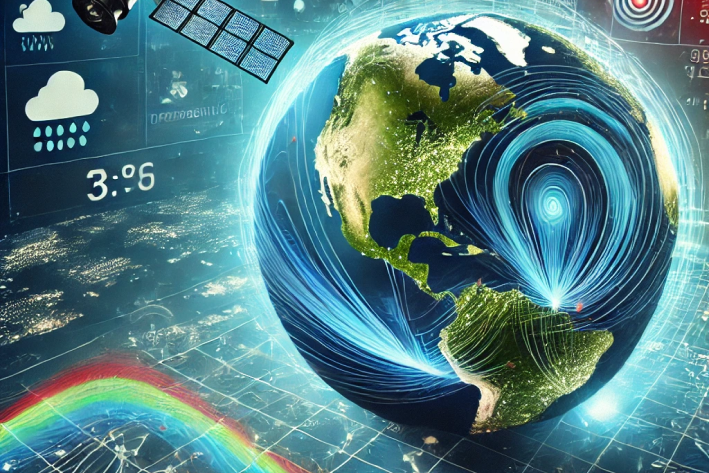
06/12/2024: Weather forecasts are essential for agriculture: they help plan workflows, use resources efficiently, and minimize risks. Advances in satellite technology and artificial intelligence improve precision, but natural limitations and the chaotic nature of weather remain challenges.

Weather forecasts are much more than just guidance for farmers – they are a central planning tool. Precipitation, temperature, and wind affect every decision, from sowing and care to harvest. This article explains the importance, functioning, accuracy, and future of weather forecasting and highlights how they sustainably improve the efficiency of agricultural operations.
Agriculture is closely tied to the whims of the weather. Rain and temperature affect plant growth, while wind and frost pose significant risks. Accurate weather forecasts help farmers plan their work efficiently, save resources, and maximize yields. Especially in times of climatic uncertainties and tight margins, knowing upcoming weather conditions is essential. This allows farmers to better time sowing and harvesting, optimize irrigation measures, and avoid unnecessary costs.
Weather forecasts are based on a systematic process of data collection, analysis, and modeling:
The accuracy of weather forecasts depends heavily on the forecast period. Short-term forecasts (1–2 days) are highly reliable today, while accuracy decreases significantly after 5–7 days. This is because the atmosphere is a complex system where even minor inaccuracies in input data can lead to larger deviations in the long term. Nevertheless, modern technologies such as high-resolution models and machine learning enable significantly more accurate forecasts than 20 years ago.
Weather forecasts are becoming increasingly accurate thanks to technological advancements. Improved satellite technology, denser measurement networks, and more powerful computers allow for processing larger amounts of data and creating more complex models. Artificial intelligence is increasingly being used to improve real-time forecasts and account for local specifics. However, natural limitations remain: the chaotic behavior of the atmosphere and the influence of unpredictable extreme weather events continue to pose challenges.
The future of weather forecasting lies in more precise models and application-oriented solutions. Researchers are working on developing real-time forecasts that are even more accurate and specific locally. New technologies, such as better radar systems or machine learning algorithms, enable forecasts to be continuously refined. Additionally, there is a growing effort to not only provide forecasts but to make them directly usable in practical applications. Systems that not only report the weather but also provide concrete recommendations for fieldwork are not futuristic but are currently in development. Despite all the progress, the question remains: how stable is the climate in a changing world? Extreme weather events and shifting patterns could pose new challenges for forecasting in the long term.
Weather forecasts are indispensable for agriculture. Technological developments make them increasingly precise and practical. However, they face natural limits imposed by the chaotic nature of the atmosphere and the influence of climate change. The future lies in application-oriented solutions that not only provide farmers with forecasts but also offer concrete, actionable recommendations. In this way, weather forecasts will become an even more critical tool for planning and efficiency in agricultural operations.
Do you have suggestions or questions about this article or topics related to agriculture, digitalization, AI, and AgTech? Feel free to send us an email at support@tunen.ai or drop us a message on Instagram or LinkedIn. We look forward to hearing from you.